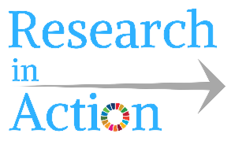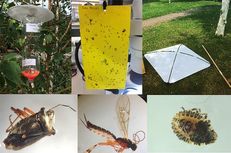Developing a coordinated approach to partnerships and collaborations for applied research and learning as a result of demonstrating the impact and value of student-engaged research.
What advice would you give an institution staff member keen to progress Living Labs?
“Network - go out and meet people from different departments - once you start explaining what LLs are and the importance of them, people are so often keen to get involved.” – Hannah Sellers, Academic Engagement Officer
A successful student-Estates partnership for final year dissertations at the University of Leicester inspired the creation of a graduate internship coordinating Living Labs at a whole institution level, called Research in Action. In recognition of the value student research brings to institutions in tackling real-world sustainability challenges as well as the impactful experience this offers students, Leicester initially invested in a fixed-term role to employ one outstanding graduate to use her learning to coordinate applied learning and research partnerships between students, academics and professional staff that has now been made a permanent staff resource. The role sits within the Social Impact Team at the University allowing her to facilitate engagement and build partnerships between students, academics and professional (operational) staff, along with businesses through the Innovation for Good programme.
The Living Lab Coordinator at Leicester seeks potential opportunities for Living Labs within academic modules and for dissertation research. Communication and an active presence on campus has enabled students to realise the existence of such opportunities, meaning that students are now approaching the Social Impact Team directly with their own research proposals. The success of this role has proved the importance of having a role so now there is a permanent position (Academic Engagement Officer) that facilitates both Living Labs and Education for Sustainable Development at Leicester.
The creation of a role such as this is clearly incredibly useful for developing a coordinated approach.
“…at the beginning it was happening in lots of different departments but there was nothing that tied it together. My role has been to meet with lots of academics from various departments to better link things together.” – Hannah Sellers, Academic Engagement Officer, University of Leicester
Living Labs at Leicester primarily happen within academic areas, through the formal curriculum. Projects are predominantly carried out through dissertations in science and geographical science disciplines. Some work is being done to create means of measuring the impact of such projects and continuing the Living Lab cycle, students are required to produce a 1-page report with significant findings and recommendations for the future. There is no obligation for applied research projects to be used as a basis for implementing change on the campus, however all research has the potential to be used therefore creating higher level Living Lab.
Through Research in Action, this year for the first time, students had the opportunity to work within a professional services department e.g. the Social Impact Team had three summer placement students researching and trialling sustainability projects about plastics use, sustainable food and creating an interactive, digital campus; these projects are all are currently being put into practice.







 Except where otherwise stated, content on this site is
licensed under a Creative Commons Attribution 3.0 License.
Except where otherwise stated, content on this site is
licensed under a Creative Commons Attribution 3.0 License.
